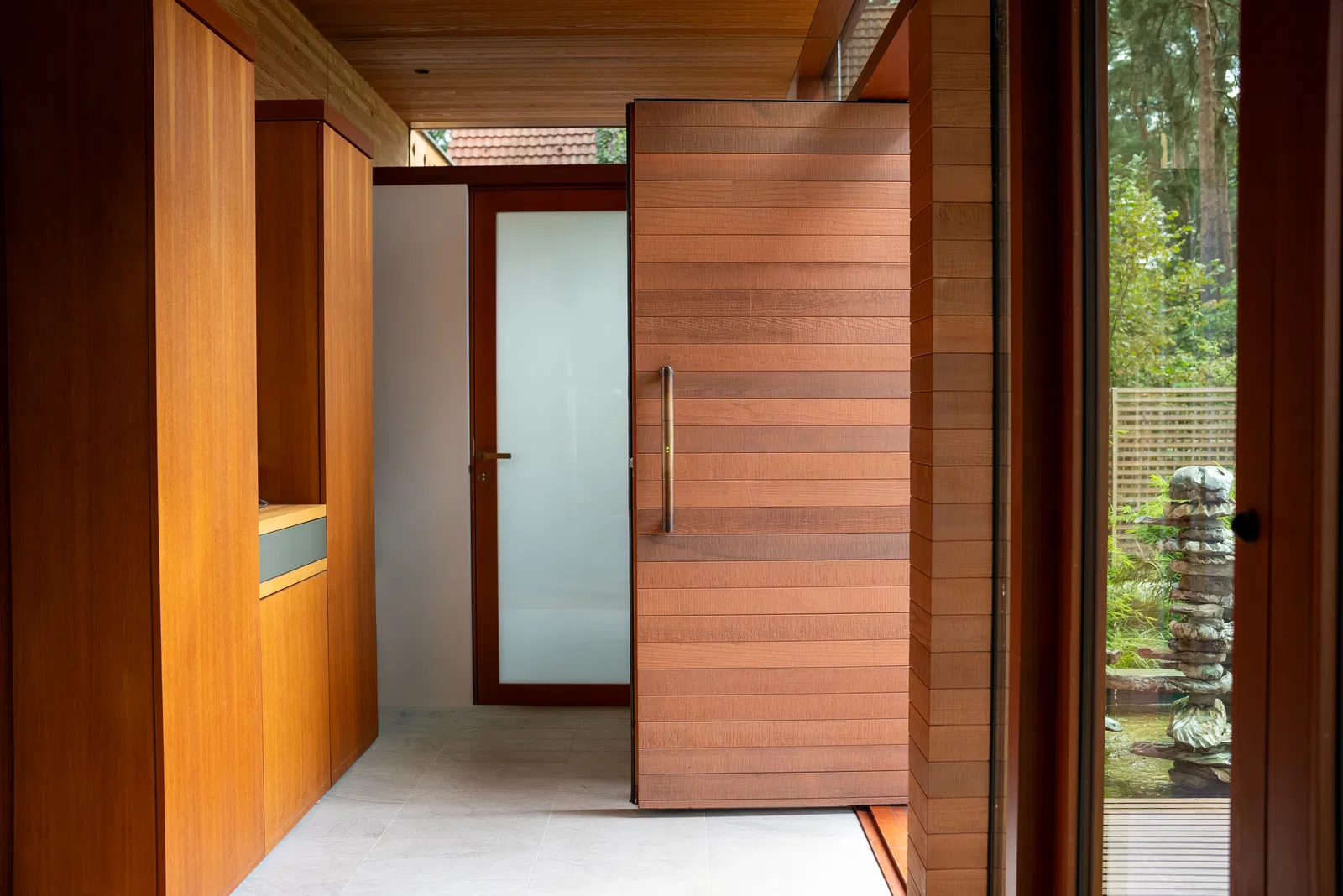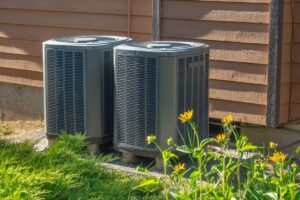
When it comes to choosing doors for your home, the material is just as important as the design. Not only does the right material impact the aesthetics of your door, but it also determines its durability, energy efficiency, and overall functionality. Pivot doors, sliding doors, and entrance doors each have different material options, tailored to their specific use cases. In this blog, we’ll explore the best materials for each of these door styles—with a particular focus on entrance doors—so you can make a choice that strikes the perfect balance between style and practicality.
The Role of Entrance Doors in a Home
Entrance doors are far more than just an entry point; they serve as the face of your home, making the first impression for guests and passersby. As one of the most-used doors in any household, entrance doors need to combine durability, security, insulation, and aesthetic appeal.
This versatility is why the material you choose for your entrance door is so critical. It affects not only the door’s look but also its performance in areas like protection against weather, wear and tear, and home energy efficiency.
Best Materials for Entrance Doors
1. Wood
Wood remains one of the most classic and popular materials for entrance doors, and for good reason.
Pros:
Timeless and luxurious aesthetic
Easily customizable with various finishes, stains, and carvings
Natural insulating qualities to maintain energy efficiency
Cons:
Requires regular maintenance (e.g., staining or sealing) to prevent warping and weather damage
Can be expensive, especially with exotic wood species
Best-for:
Homes with a traditional or rustic look, as well as homeowners keen on adding warmth and richness to their entryway.
2. Steel
Steel entrance doors are a modern, budget-friendly option offering strength and durability.
Pros:
High security and resistance to impacts
Low maintenance compared to wood
Energy-efficient core options available
Cons:
Can dent if impacted by heavy objects
Limited design versatility compared to wood and fiberglass
Best-for:
Homeowners prioritizing security and durability, especially in urban or high-traffic areas.
3. Fiberglass
A versatile and increasingly popular material, fiberglass mimics the look of wood while providing exceptional durability.
Pros:
Resistant to dents, warping, cracking, and weather
Available in various textures and finishes, including woodgrain styles
Minimal maintenance required
Cons:
Higher upfront cost compared to steel and basic wood options
Surface can feel less premium compared to true wood
Best-for:
Homes in harsh climates and homeowners looking for a low-maintenance solution with a high-end appearance.
4. Aluminum
Lightweight and sleek, aluminum is a growing favorite for contemporary entrance doors.
Pros:
Sleek and modern design with high corrosion resistance
Very low maintenance
Affordable compared to solid wood
Cons:
Poor thermal insulation (unless paired with additional insulation layers)
Prone to scratches and scuffs if not anodized or painted
Best-for:
Ultra-modern homes with a minimalist design aesthetic.
5. Glass (in Combination with Other Materials)
Glass is rarely used alone for entrance doors but is often paired with wood, steel, or other materials for added style.
Pros:
Creates an open, modern, and sophisticated look
Allows natural light to brighten your entryway
Available in frosted, tinted, or textured designs for added privacy
Cons:
Requires cleaning to maintain a clear, polished look
Less secure than solid materials if not properly reinforced
Best-for:
Homes looking for modern or contemporary aesthetics with an emphasis on natural light.
Entrance Doors vs. Pivot and Sliding Doors: Material Comparisons
Pivot Doors and Materials
Pivot doors are all about making a bold design statement. Because they are often oversized and heavier, materials like solid wood, steel, and aluminum are popular due to their strength. However, Aluminum pivot doors frequently use combinations of materials—such as aluminum and glass—to enhance both functionality and aesthetic appeal.
Sliding Doors and Materials
Sliding doors typically feature lightweight materials such as aluminum or uPVC for ease of operation. Glass is the most popular choice for panels, providing transparency and a seamless indoor-outdoor connection. However, modern Aluminum sliding doors may also use insulated glass to address energy efficiency.
Entrance Doors and Materials
Entrance doors prioritize a combination of security, durability, and charm. While options like wood and fiberglass are warmer and more inviting, steel, aluminum, and reinforced glass offer functional benefits such as weather resistance and low maintenance.
Factors to Consider When Choosing Entrance Door Materials
Climate:
For homes in areas with extreme weather, choose materials like fiberglass or aluminum that can resist harsh conditions.
Security:
Steel entrance doors are incredibly secure, but reinforced wood or fiberglass doors can also offer excellent security.
Energy Efficiency:
Look for materials with insulation properties (e.g., fiberglass doors with foam cores) to maintain indoor temperatures and reduce your energy bills.
Maintenance:
Wood requires regular care, while steel, aluminum, and fiberglass require little maintenance.
Aesthetics:
Match the material to your home’s style—wood for traditional charm, aluminum or steel for modern minimalism, and glass combinations for contemporary elegance.
The right entrance door material can make or break the functionality and aesthetic appeal of your home’s entryway. While traditional wood offers timeless warmth, modern alternatives like fiberglass and steel provide durability and low-maintenance solutions for busy homeowners.
Questions to Ask Yourself:
What’s your priority—curb appeal, security, or energy efficiency?
How much maintenance are you willing to do?
Does the material suit your home’s architectural style?
Each material comes with its own advantages and challenges, so take time to evaluate what fits your needs best. No matter what you choose, the perfect Aluminum entrance door will bring beauty, security, and functionality to your home.







